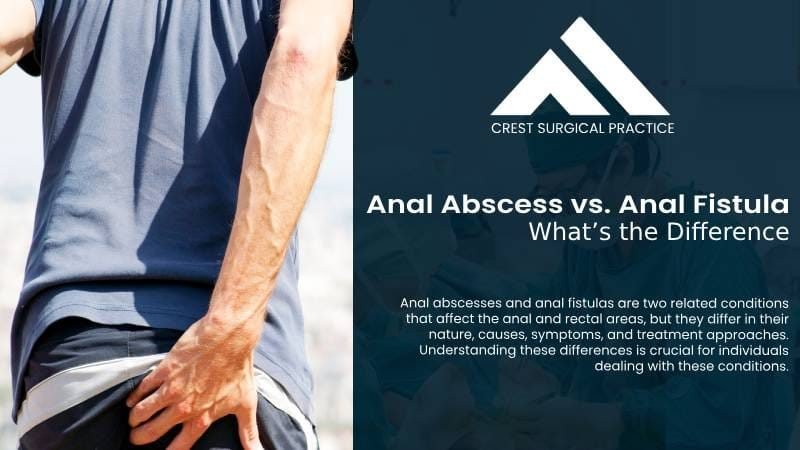Anal abscesses and anal fistulas are two related conditions that affect the anal and rectal areas, but they differ in their nature, causes, symptoms, and treatment approaches. Understanding these differences is crucial for individuals dealing with these conditions. Before looking for effective treatment for anal pain in Singapore, let’s explore the key distinctions between anal abscesses and anal fistulas.
Defining Anal Abscess and Anal Fistula
Anal Abscess:
An anal abscess is a painful, localized collection of pus near the anus or rectum. It is often caused by an infection in an anal gland or duct. Symptoms may include severe pain, swelling, redness, and fever.
Anal Fistula:
An anal fistula is a small tunnel that forms between the anal abscess and the skin around the anus. It usually develops as a result of a ruptured abscess that didn’t fully heal. Symptoms may include recurring abscesses, persistent discharge of pus or blood, and discomfort.
Causes and Pathogenesis
Anal Abscess:
Typically caused by bacterial infection of an anal gland or duct, leading to pus accumulation.
It can occur due to conditions like Crohn\’s disease, sexually transmitted infections, or trauma to the anal area.
Anal Fistula:
Forms when an anal abscess ruptures, creating a tunnel between the abscess cavity and the skin.
Can be caused by chronic inflammation, untreated abscesses, or certain medical conditions.
Symptoms
Anal Abscess:
- Sudden and severe pain near the anus
- Swelling, redness, and warmth in the affected area
- Fever and chills
- Discharge of pus
Anal Fistula:
- Chronic discomfort or pain
- Continuous or intermittent discharge of pus, blood, or foul-smelling fluid
- Recurring abscesses
- Skin irritation and itching around the anus
Diagnosis
Anal Abscess:
- Diagnosis is usually made through a physical examination.
- Imaging tests like ultrasound or MRI may be performed to assess the extent of the abscess.
Anal Fistula:
Diagnosis often requires a more thorough examination, which may involve imaging (MRI) to trace the fistula\’s path.
Treatment
Anal Abscess:
Typically treated with surgical drainage to remove the pus and provide relief.
Antibiotics may be prescribed to treat the infection.
Anal Fistula:
Requires surgical intervention to repair the tunnel.
Surgery may involve fistulotomy (cutting the fistula open) or ligation of intersphincteric fistula tract (LIFT).
Complications
Anal Abscess:
If left untreated, the infection can spread and lead to severe complications.
Anal Fistula:
Complications may include abscess recurrence, fistula reformation, or incontinence in some cases.
Whether you are looking for Anal fistula surgery in Singapore or Anal abscess surgery in Singapore, Crest Surgical Practice can help. Schedule your consultation today!







